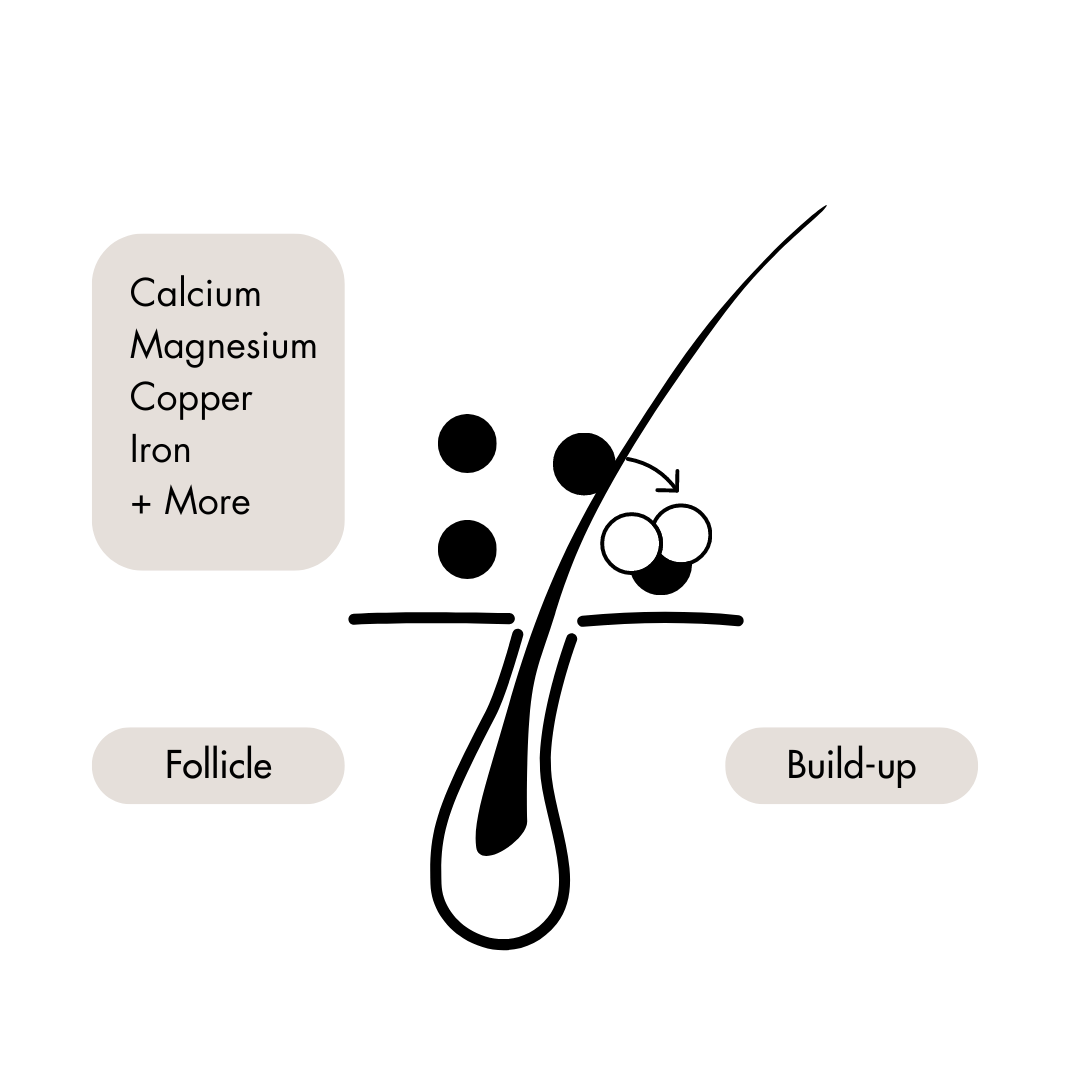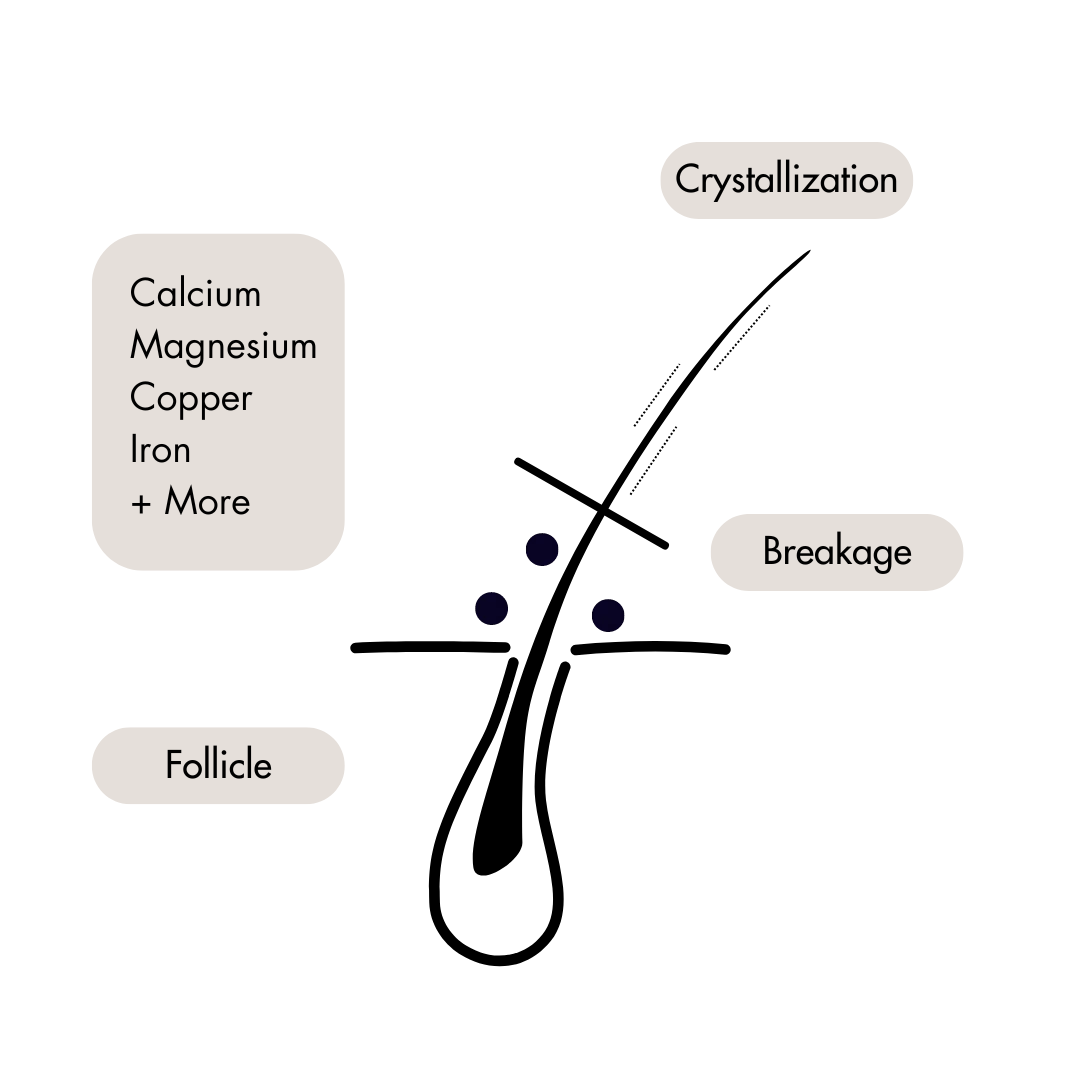



Hard Water
Hard water contains a high concentration of dissolved minerals, primarily calcium and magnesium, which give the water its hardness.
These minerals are absorbed when rainwater seeps through sedimentary rocks like limestone or chalk.
This process ensures that hard water, unlike soft water, has a higher mineral content.
Limescale Build-Up: Hard water leaves limescale deposits, which can cause blockages in pipes and damage household appliances.
Skin and Hair Issues: Hard water can make hair dry and brittle, and lead to dry, irritated skin.
Poor Soap Lathering: Soap doesn't dissolve easily in hard water, making it harder to lather and less effective at cleaning.
Stiff Laundry: Clothes washed with hard water can feel rough and stiff because the minerals cling to the fibers.
Rainwater that comes into contact with sedimentary rocks absorbs small amounts of minerals like calcium and magnesium.
These minerals are then transported through groundwater, rivers, lakes, and reservoirs, eventually reaching our households where they are used daily for drinking, cooking, washing, and heating.
Shower water can sometimes contain heavy metals such as copper, lead, and arsenic.
These substances often enter the water through human activities like industrial processes, pesticides that contaminate the water system, and corrosion of old pipes.
While minerals in hard water, like calcium and magnesium, are generally harmless, other contaminants such as heavy metals, radon, pesticides, and lead can be harmful to health.
Using a shower filter like Novaqua helps remove these harmful contaminants, providing cleaner and safer water for your skin and hair.
Filtration Process
Upon first contact with your shower filter, the water begins to transform.
Our advanced filtration technology, featuring KDF-55 and Calcium Sulfite, immediately removes harmful minerals such as calcium, magnesium, copper, and iron.
This means no more buildup on your skin or in your hair. The result?
Your hair feels softer and looks shinier, and your skin is free from irritation.
As the water flows through the filter, the pH level is balanced.
This is crucial for keeping your skin and hair healthy. No more dealing with dry, flaky skin or brittle hair.
Novaqua ensures that the natural acidity of your skin and hair is restored, helping to prevent issues like eczema and psoriasis.
Our filter does more than just remove minerals.
While you enjoy your shower, the filter neutralizes chlorine and heavy metals by binding them to KDF-55 and Calcium Sulfite.
The result? Chlorine is converted into harmless chloride, and your water is free from metals that can damage your skin and hair.
This means you no longer have to worry about discolored hair or skin irritation from chlorine after every shower.
Now that the water is fully filtered, you’ll notice that your shampoo and soap lather better and rinse out completely, without leaving any soap residue behind.
No more product buildup that clogs and irritates your hair and skin.
Every shower is now a refreshing and cleansing experience.
With Novaqua, you transform your daily shower into a luxury experience that protects, nurtures, and refreshes your skin and hair.
You no longer have to worry about the harmful effects of hard water.

#1
Minerals in hard water penetrate the hair and crystallize during drying.
This creates a crispy and dry feeling, making the hair more vulnerable to breakage.

#2
Hard water leaves soap residues on the skin, which draw out moisture and clog the pores. This can lead to dry, rough skin.

#3
Hard water reduces foam formation and leaves a layer of product residue and minerals on your skin, which can lead to itching and flakes.
Hair
Hard water can make your hair dry, dull, and straw-like.
This happens because minerals such as calcium and magnesium leave a layer behind that weighs down the hair and reduces its natural shine.
As a result, curls lose their bounce, and the hair becomes brittle and prone to breakage.
The minerals in hard water, such as copper and iron, can affect your hair color.
Lighter hair may develop an orange tint, while darker hair can take on a copper-red hue.
This happens because these minerals bind to the hair, especially after exposure to chlorine in the water.
Hard water can disrupt the balance of natural oils on your scalp.
This can lead to dryness and the formation of flakes.
Additionally, hard water makes it harder to rinse shampoo completely, which results in a buildup of soap residues that can irritate your scalp and clog pores.
Skin
The minerals in hard water can irritate and dry out the skin, which can worsen existing skin issues.
For some people, this can even lead to red, irritated spots on the skin, especially after a hot shower due to the presence of chlorine and other chemicals.
Hard water can worsen eczema by increasing the pH level of the skin, disrupting the skin barrier's healing process.
This can lead to more dryness, redness, and inflammation, especially in people with a genetic predisposition to skin barrier issues.
A shower rash, visible as red, irritated spots on the skin, can be caused by hard water.
The mineral deposits in hard water can dry out the skin and make it more sensitive to irritation, especially when the skin barrier is already weakened.
Chlorine in the water can further aggravate this issue.
Psoriasis, a chronic skin condition with red, scaly patches, can worsen due to hard water.
The dryness and minerals in hard water can irritate the skin and exacerbate the symptoms of psoriasis, especially when the skin barrier is compromised.

A water-first approach to beauty? Game-changing.
Every shower hits your hair and skin with heavy metals, unwanted minerals, and impurities, quietly causing damage.
While there’s no magic fix for hair loss or eczema, Novaqua stops your water from making things worse.